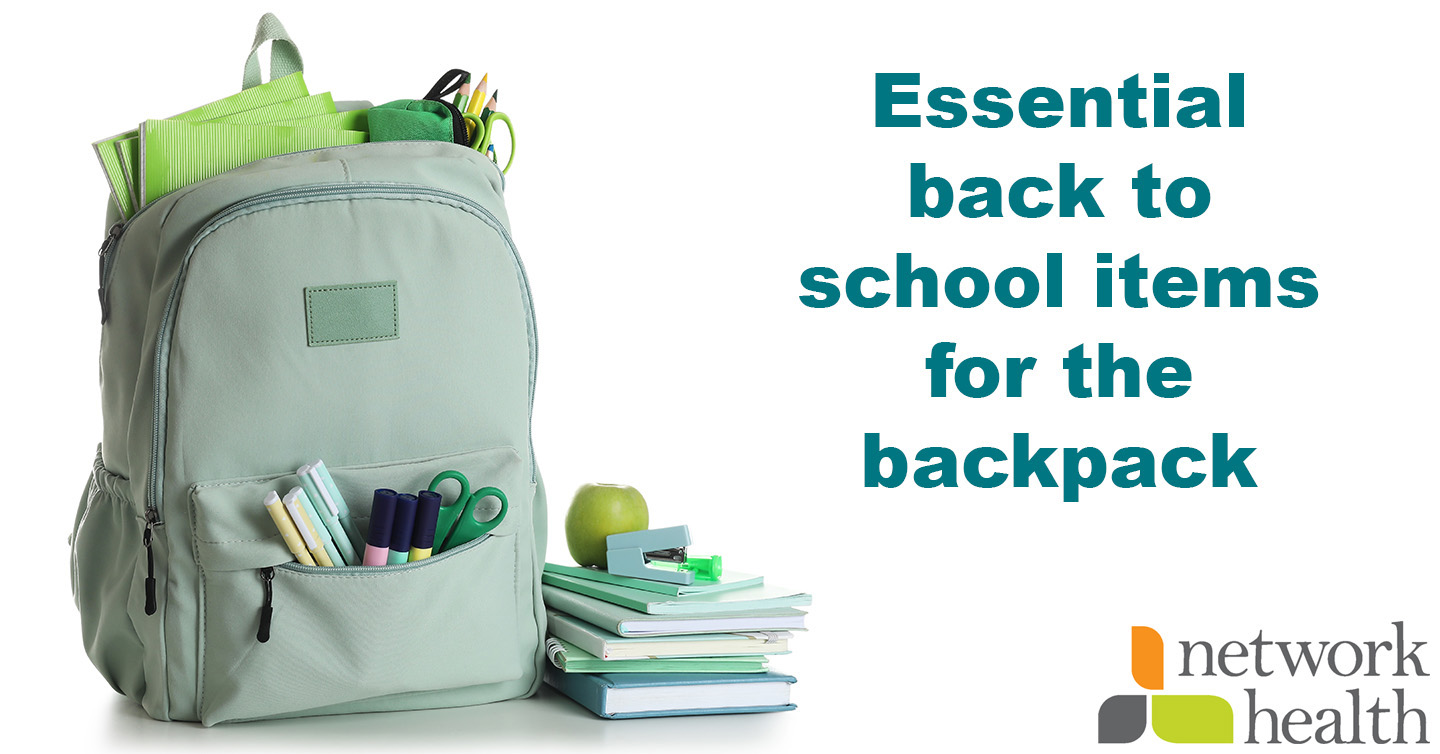Seasonal Allergies in School: Helping Your Child Breathe (and Learn) Easier

Medically reviewed by Michele Eggers, supervisor quality health integration-clinical at Network Health
10/9/2025
Kids are back in classrooms, but so are the sniffles. Allergies can make it a challenge to do just about anything, let alone concentrate all day in school. As parents, it’s important to help our kids manage seasonal allergies so they can focus on learning.
Of course, that’s easier said than done. In fact, many parents don’t even realize their child has seasonal allergies… mistaking it for a cold or the flu. After all, there’s no shortage of viruses to go around during the school year. But the reality is that 18.9% of kids have seasonal or environmental allergies.
How to Know It’s Allergies and Not a Cold
So, the first step is determining that your kid’s runny nose, sneezing or coughing isn’t a cold but is actually allergies. It’s not always obvious, especially if the symptoms are mild, but there are some telltale signs that can point in the direction of one or the other.
|
Seasonal Allergies |
Common Cold |
|
Itchy eyes |
Body aches |
|
No fever |
Fever rare |
|
Lasts weeks to months |
Short term, 3-14 days |
|
Cough and sore throat less likely |
Cough and sore throat more likely |
As you can see, the symptoms can be similar, but there are key differences. Comon allergy symptoms include itchy eyes and sneezing fits, but no fever or body aches. Symptoms of the common cold might include more coughing and throat irritation, body aches and will generally last for a shorter amount of time.
What Can Trigger Seasonal Allergies in School
Now, you might think that being inside a classroom would mean your child is protected from allergens, but that’s not necessarily the case. For some, being indoors in a clean environment can improve allergy symptoms, but it isn’t always that clear cut.
For one, your child will likely be outside for recess or physical education class. Outside, they may be exposed to the following allergens.
- Ragweed
- Grass pollen
- Mold spores
Inside the school, there are other allergens likely present. These can be things like the following.
- Dust mites
- Pet dander from other classmate’s clothes
- Chalk dust
![]() If you like this article, follow us on Facebook for more like it.
If you like this article, follow us on Facebook for more like it.
How to Help Your Kids Handle Environmental Allergies at School
If you know your child struggles with seasonal or environmental allergies, a good first step is to let their teacher and school nurse know. That way, they can be aware of why your child might seem tired or sniffly, and they can also let you know if their allergies seem worse during certain activities or times of the day.
Also, remember that allergies can develop in a person’s life at any time. Just because your child didn’t have seasonal allergies before doesn’t mean they don’t now. If you hear from your child’s teacher that they are struggling with symptoms potentially related to allergies, it’s a good idea to discuss it with your personal doctor.
Choosing the Right Medication
The good news is that seasonal allergies can often be treated with over-the-counter medications, especially if the symptoms are mild. That said, it’s important to choose the right medication. In more sever cases, a doctor may prescribe a nasal spray or allergy shots.
- Over-the-Counter Allergy Medicine
Stick with a non-drowsy antihistamine, like Allegra (fexofenadine) or Claritin (loratadine). Avoid decongestants or older antihistamines like diphenhydramine (Benadryl). Before settling on a medicine, be sure to check the age ranges. There should be both adult and child versions.
- Steroid Nasal Spray
Nasal sprays for environmental allergies can be found over-the-counter, but it’s still a good idea to discuss it with their pediatrician. They can help you find the right one and prescribe it, if necessary. While these can be more effective at treating allergy symptoms than antihistamines, they can also take longer to work and long term use isn’t recommended for children.
- Allergy Immunotherapy Shots
A doctor may recommend allergy immunotherapy for moderate to severe allergy symptoms that happen for several months throughout the year. If medications are not working for your child and you have attempted to control environmental exposure to allergens without success, you might consider talking with a pediatrician about this option. This therapy consists of receiving injections of concentrated allergen extracts at a cadence directed by your personal doctor, first ramping up the exposure over several months, and then receiving a dose of the allergen over a gradually decreasing frequency over the course of a few years.
Keeping allergy symptoms at bay in school can take effort, but it pays off with better focus, mood and attendance for your child. With a little preparation and knowledge, your kid can enjoy the school year without the sneezes.
 Everything to Know About Nasal Sprays, Eye Drops and Allergy Pills
Everything to Know About Nasal Sprays, Eye Drops and Allergy Pills
Resources
https://www.goodrx.com/conditions/allergies/allergy-medicine-for-kids
https://www.cedars-sinai.org/csmagazine/how-to-detect-and-treat-allergies-in-kids.html
https://allergyasthmanetwork.org/allergies/managing-allergies-in-schools/



